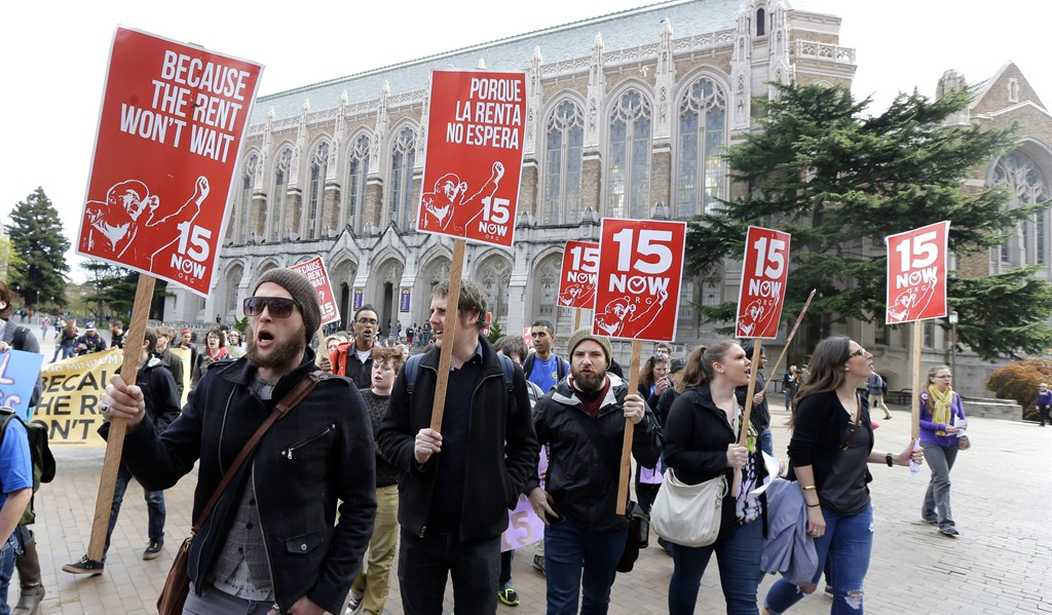In 2014, I debated Seattle City Council member and avowed socialist Kshama Sawant. Sawant was one of the chief proponents of a city ordinance that would create a $15 minimum wage. Eventually, the city adopted a three-phase transition plan that would push minimum wage to $11 per hour, then $13 per hour, then $15 per hour. In our debate, I asked Sawant directly whether she would support a $1,000 minimum wage. She deflected the question, of course. She deflected the question because reality would not allow for a $1,000 minimum wage. Were the government to mandate such an idiocy, every business in the Seattle area would immediately cut back employment, and all of those seeking minimum wage jobs would end up losing their income.
As it turns out, it didn't take a $1,000 minimum wage to destroy the income for minimum wage workers. Thirteen dollars was plenty. According to a paper from The National Bureau of Economic Research, "the minimum wage ordinance lowered low-wage employees' earnings by an average of $125 per month in 2016."
All of this was foreseeable, given the fact that businesses compete with one another to lower cost and thus operate with slim profit margins. That means businesses have two choices when government forcibly raises labor costs: increase prices and thereby lower demand, or cut back on the work force. Businesses opted to do the latter in order to stay competitive.
Reality is unpleasant. Perhaps that's why so few politicians seem willing to face up to it.
On a larger scale, the bipartisan consensus in favor of regulations that force insurance companies to cover pre-existing conditions mirrors the minimum wage debate. It is perfectly obvious that forcing insurance companies -- professional risk assessors that determine pricing based on actuarial estimates as to health -- to cover those with pre-existing conditions costs them an enormous amount of money. If you are a consumer, why would you bother buying a health insurance plan while healthy, when you could wait to do so until after your costs materialize? Yet both parties would rather cater to the foolish notion that it is "unfair" for insurance companies to act as insurance companies than allow insurance companies to do what they do best: create a market to allow Americans to exercise choice.
Recommended
But in economics, once one heresy has been advanced, a slew of other heresies follow. Coverage of pre-existing conditions has to be subsidized somehow. Democrats propose to mandate that people buy health insurance; this violates freedom of choice and artificially increases premiums for the healthy in order to pay for the sick. Republicans propose subsidies to encourage purchase, artificially creating demand without allowing the competition among health plans that would keep premiums down.
But everyone is surprised when such schemes fail.
They shouldn't be. Politics used to be the art of educating the public about reality and pushing for change where change is possible. Now politics is the art of convincing the public that you can make reality disappear if it votes for you. Sadly, our politicians can't make reality disappear. And every time they try to do so, reality comes rushing back with a vengeance.
























Join the conversation as a VIP Member